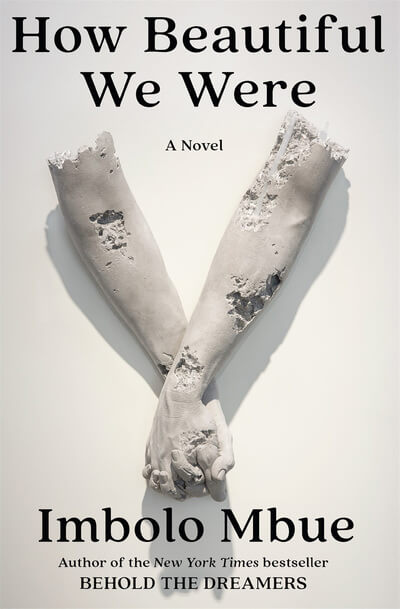In 2017, Imbolo Mbue won the PEN/Faulkner Award for Fiction for her novel Behold the Dreamers, but it’s taken 17 years for the novel she began before that one, How Beautiful We Were, to reach publication. Readers who enjoyed Behold the Dreamers will be pleased that Mbue persisted to tell this powerful story of the fateful clash between an American oil company and the tiny African village forced to live with the consequences of its environmental destruction.
ALSO IN BOOKPAGE: The cast audiobook of How Beautiful We Were is exquisite. Read our starred review.
Set in an unnamed country that Mbue says bears some resemblance to her native Cameroon, the novel chronicles more than four decades in Kosawa, the only one of eight “sibling villages” that must live with the “curse that came from living on land beneath which oil sat.” As the deaths of their children mount and the damage to their agriculture becomes more catastrophic, the villagers’ frustration turns to desperation. They kidnap several oil company representatives, which initiates a series of events that brings both disaster and hope to the community.
Mbue narrates her story through the voices of five members of Kosawa’s Nangi family—Thula, a young woman who evolves into an activist; her mother, Sahel; grandmother Yaya; uncle Bongo; and brother Juba—along with a collective of Thula’s contemporaries she calls the Children. While there are clear villains and heroes, the political and ethical questions faced by Mbue’s characters are never presented in black-and-white terms, even when Mbue describes Kosawa’s response to the oil company’s intransigence. Mbue devotes considerable attention to issues like patriarchy and the beauty and role of myth and magic in the lives of Kosawa’s villagers, deepening and contextualizing the novel’s tragic elements.
How Beautiful We Were proceeds at a deliberate pace that’s appropriate for the moral gravity of the story and the fateful choices—wise and unwise, but always undeniably human—made by Mbue’s characters. To those disinclined to question the role that economic exploitation plays in supporting our modern lifestyle, reading this novel may prove an unsettling experience.




